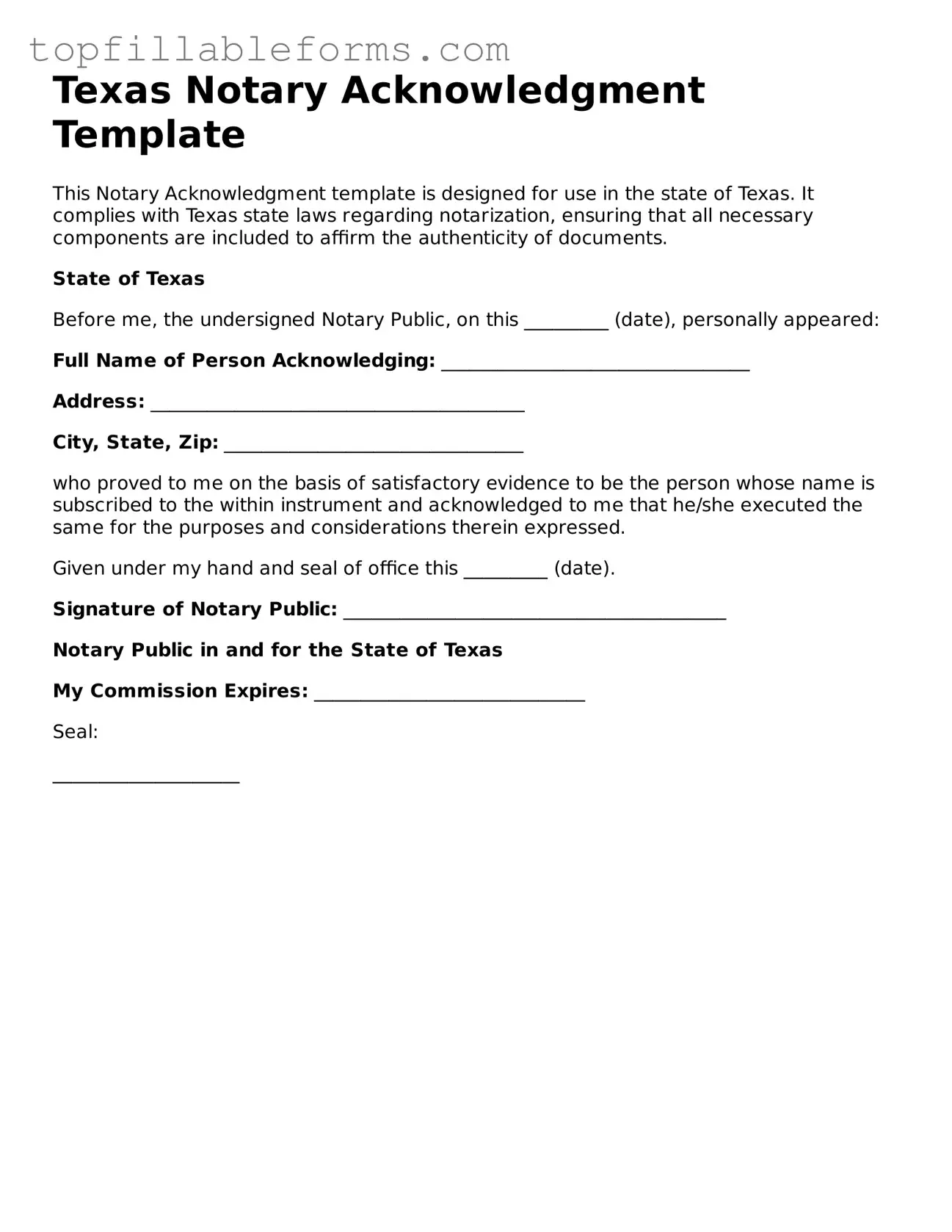Attorney-Verified Notary Acknowledgement Template for Texas
The Texas Notary Acknowledgement form is a legal document that verifies the identity of a signer and confirms that they willingly signed a document. This form is essential for ensuring the authenticity of various legal transactions. Understanding its purpose and proper usage can help streamline processes and prevent disputes.
Open Notary Acknowledgement Editor Here

Attorney-Verified Notary Acknowledgement Template for Texas
Open Notary Acknowledgement Editor Here
Finish the form now and be done
Finish your Notary Acknowledgement online by editing, saving, and downloading fast.
Open Notary Acknowledgement Editor Here
or
▼ PDF File
